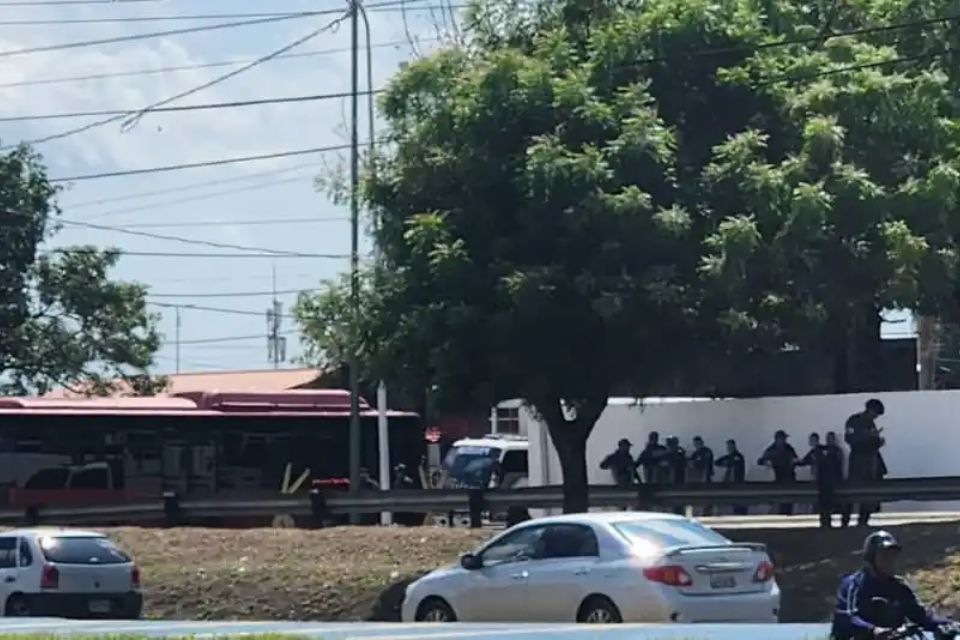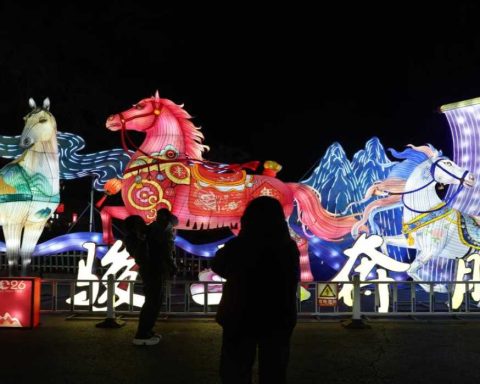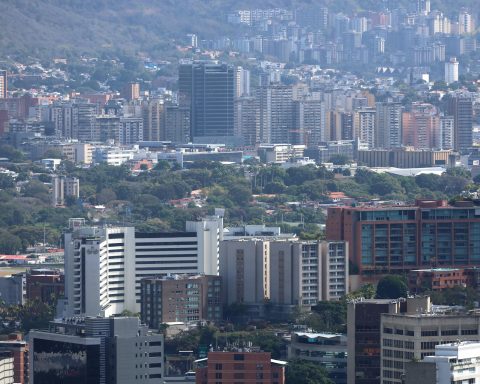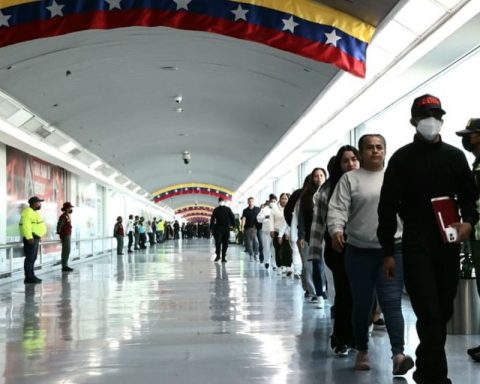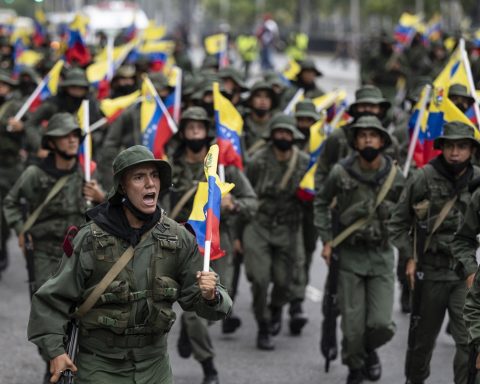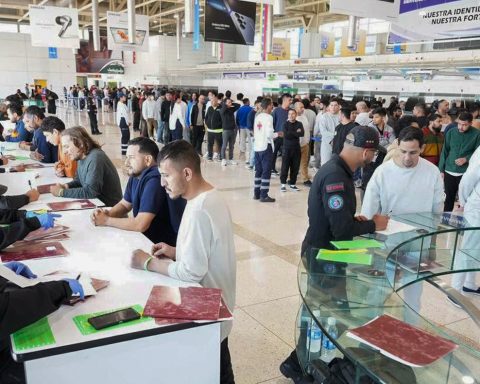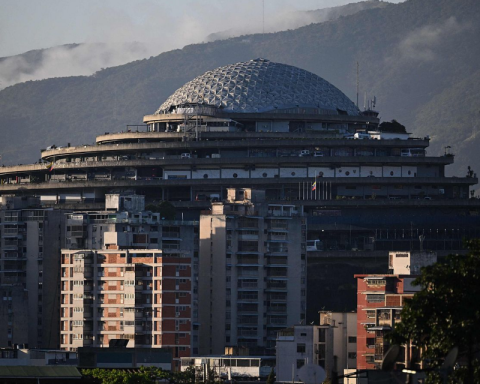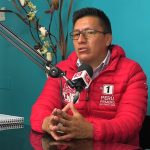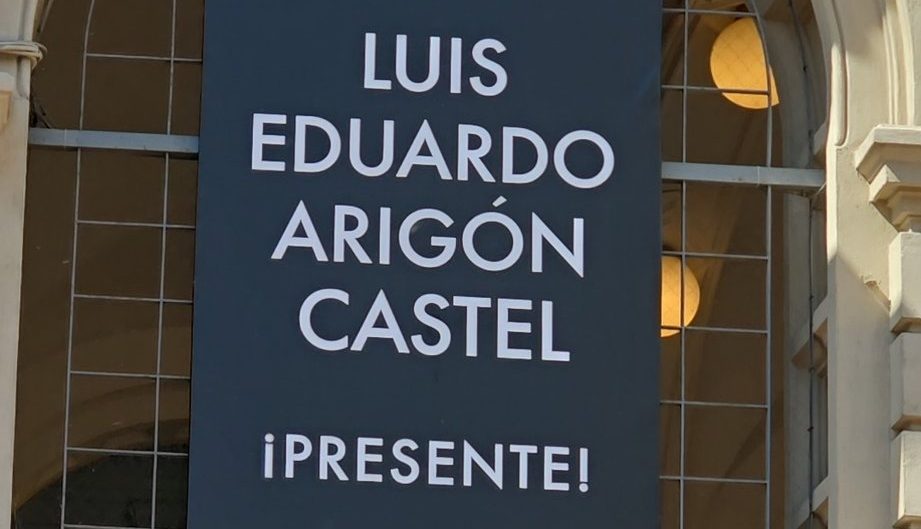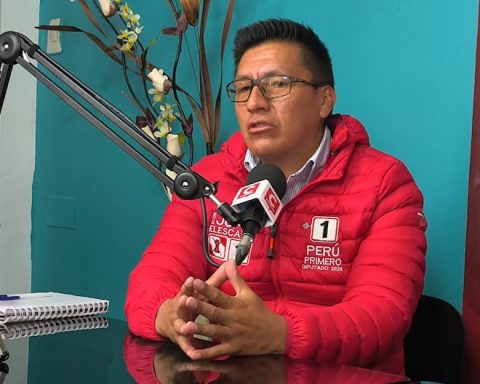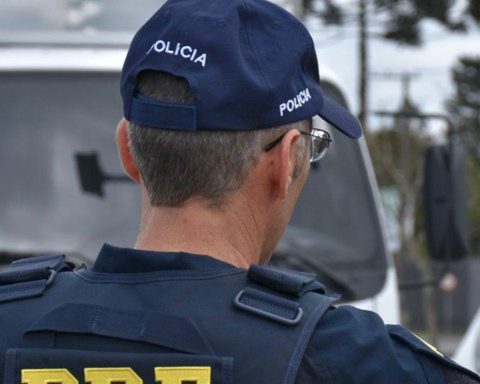After two months of being detained for their alleged connection to the protests, the detainees in the Tocuyito prison began receiving visits on Monday, September 30. There are still relatives who have not received the call from the Ministry of Penitentiary Service. Mothers and wives complain about the harsh conditions of the place and ask for their immediate freedom
Since Monday, September 30, those detained for the post-election protests began to receive visits at the Carabobo Judicial Confinement Center, better known as the Tocuyito prison. Relatives complain about the harsh conditions of the place, the cruel and inhuman treatment to which they are subjected and the depression into which some of the prisoners have fallen, who have attempted to make an attempt on their lives.
«They called us that they had a visitor on Monday, after two months. I entered at 3:50 in the afternoon, when I entered it was very bad. He told me that he has tried to commit suicide three times.. He told me that they treat him very badly, they don’t hit him, everything is verbal. The food is water with spaghetti, rice with water, the ground meat is given raw. They don’t give them water, if they give them water it’s half a glass. They eat at 4 in the morning, at noon and if anything they give dinner at 5 or 6 in the afternoon,” said Génesis Villarroel.
She is the wife of Wladimir Tirado, 33 years old, who was arrested on July 29 in the afternoon at the El Trébol distributor, in La Guaira. The young man, a driver and thanatologist, was heading home after working hard that election weekend.
This Thursday, October 3, together with a group of relatives of 48 other detainees in La Guaira, he filed an appeal for protection before the Supreme Court to request the nullity of their cases. In addition to their freedom, they ask for respect for their human rights, due process and the right to defense.
«He told me that he didn’t want to live, he is strong for what he is going through because he really didn’t do anything wrong. “He was going straight home on his motorcycle, they stopped him and detained him,” Villarroel summarized. On the day of the visit, in which they barely had half an hour to talk in the presence of two guards, her husband told her that they had only had one meal: at four in the morning.
All the prisoners of Tocuyito, at least 500 men according to the records of the Criminal Forumhave one element in common: Accusations of terrorism and incitement to hatred. They were also accused of alleged obstruction of public roads, damage to State property or use of minors to commit crimes.
Haiskelis Castañeda, wife of Santiago Castillo, reiterated the poor conditions of almost all of the detainees and asked for their freedom.
«They are in poor condition. They don’t give them water, just once a day. That’s not fair. They are dehydrated, they have fallen into depression, some have tried to take their own lives. They are not criminals, they are also sick (…) We continue in the fight protesting, declaring, fighting daily for their freedom because they are not criminals or terrorists,” he asserted.
Santiago was arrested on July 29 along with Víctor Uzcátegui. They were coming from Catia La Mar to get gas when the police officers pulled them out of their stop and took them away.
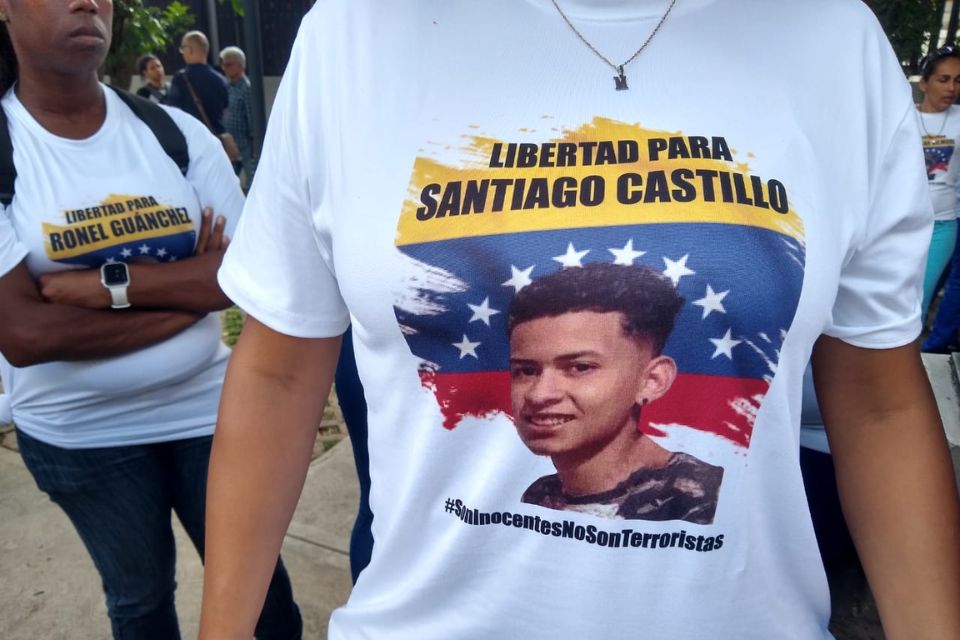
«His mother saw him and he is not in very good condition. He is a little dehydrated and poorly fed. They have not received anything from what they have taken, only the medicines and you have to have a report for them to receive them,” said Castañeda.
Conditions in Tocuyito
Relatives pointed out that the conditions inside the Tocuyito prison are harsh. They do not have water to bathe and they barely give them half or one glass of water a day, if they are lucky. The food consists of pasta or rice with some portion of ground meat.
«You can’t hold their hands, you can’t hug them. There is an inn, one has to have one’s hands under that inn. You can’t signal to them. I had a guard behind me and so did he, listening to what you say, if you speak badly (…) He told me that they tell them so many things, that their families abandoned them, that they don’t have their family member, that they are going to spend 20 years there. There are people who have lost their memory,” said Génesis Villarroel.
In each cubicle there are two bunk beds, where four people sleep. They take them out to the yard for 10 or 30 minutes and return them to their cells. Detainees have only one uniform, which they must wash, wring it well and put it on again. They handcuff them in the morning and put them on the floor for the count.
Leida Orocena had not seen her son Miguel Ángel Navarro, 20, since he was transferred to Tocuyito on August 10. «I could see him in bad conditions because they do not allow them to give him food or water. That has us depressed and them too. I ask for freedom for my son, the only thing he did was a video of him playing that was posted on social networks. “My son did not burn police modules, he is not a terrorist.”
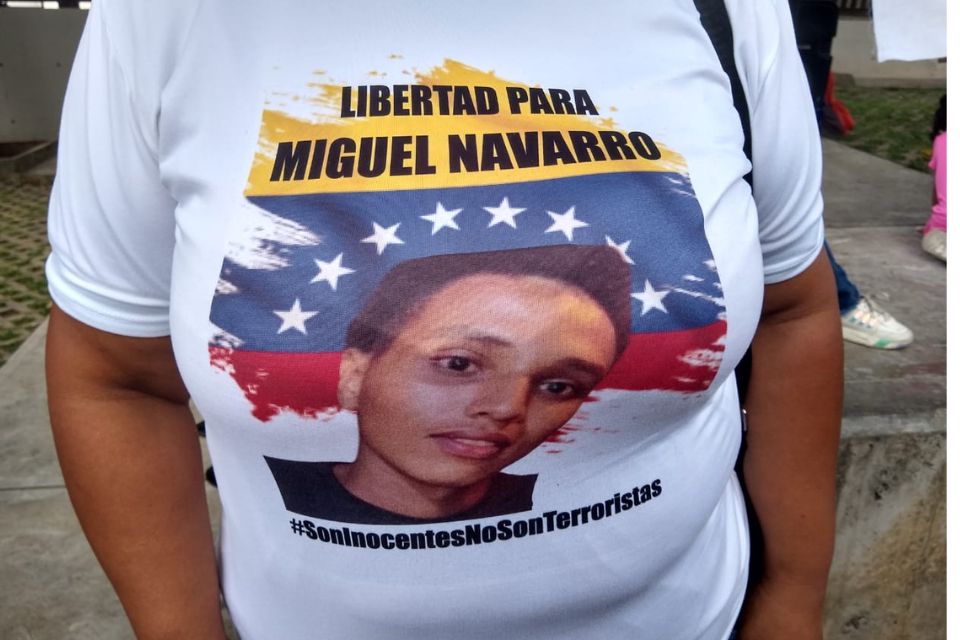
Navarro, who worked with a basketball team, the only thing he told her “is that he wanted to get out, that he is innocent and that he is already tired.” His mother also feels the fatigue, frustration, helplessness and injustice. «I don’t understand why they are so cruel to some boys who the only thing they did was defend their right, what they voted for. What’s more, my son didn’t even vote because he isn’t even registered in the CNE. “They are young, it is the future of Venezuela, I ask for freedom for all of them.”
Jesús Palmera turned 19 on October 1st in Tocuyito. PoliVargas officials detained him on July 29 at the entrance to Mare, in La Guaira.
His mother has not yet been able to visit him because she has not received the call from the Ministry of Penitentiary Service. «Look at all the time that has passed and I haven’t seen my boy since he was at the Macuto checkpoint. “He is the breadwinner.”
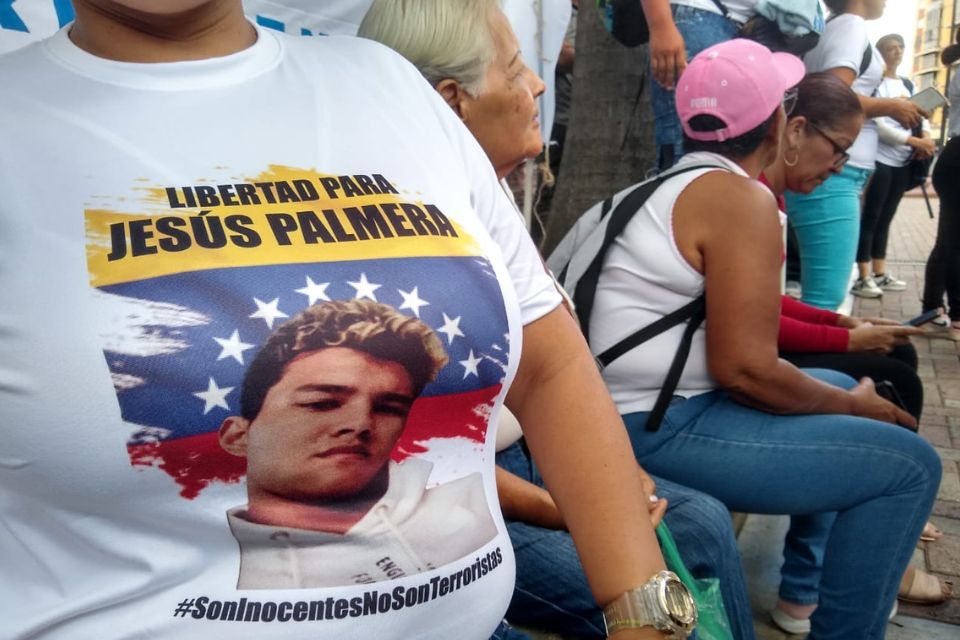
«He called only once, his grandmother had his phone number, she asked for his blessing and asked to speak to me. They were recording the call. The only thing he said to me in the message was ‘mom, help me, don’t leave me here, talk quickly to the lawyer, move everything necessary to get me out of here.’ “That was all he told me,” he commented.
He questions that his son has been detained without any element to link him to protests. «When he was at the Macuto checkpoint he told me that he did nothing wrong, that he approached the protest because a friend of his had been hit with some pellets, but when he saw that the tires were on fire, he walked away and returned to his house. The police stopped him and detained him. If you’re not grabbing the boy with a rock or anything, why are you going to stop him? “It doesn’t make sense.”
Post Views: 465
